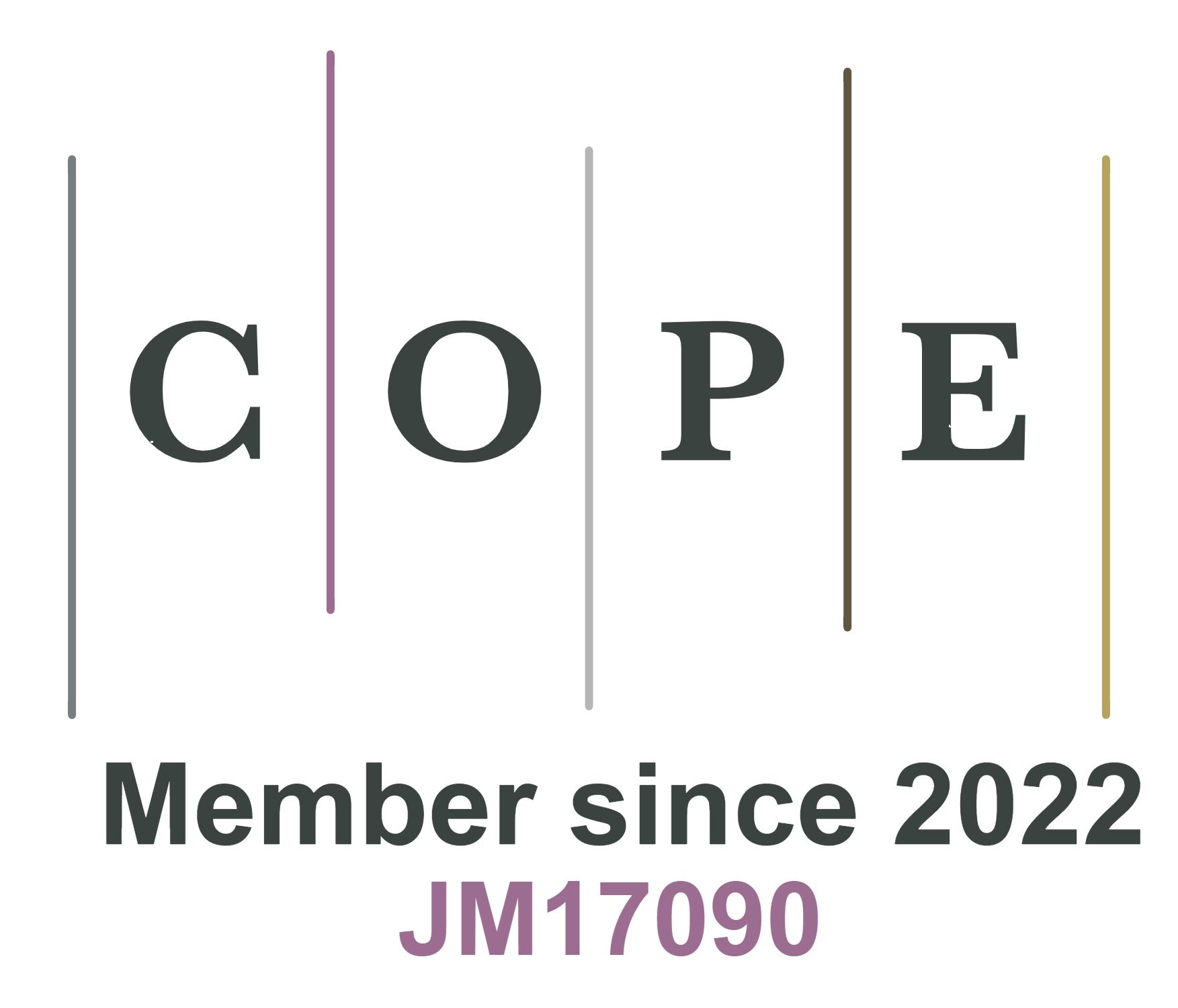REFERENCES
1. Wang S, Zuo G, Kim J, Sirringhaus H. Progress of conjugated polymers as emerging thermoelectric materials. Prog Polym Sci 2022;129:101548.
2. Kaloni TP, Giesbrecht PK, Schreckenbach G, Freund MS. Polythiophene: from fundamental perspectives to applications. Chem Mater 2017;29:10248-83.
3. Russ B, Glaudell A, Urban JJ, Chabinyc ML, Segalman RA. Organic thermoelectric materials for energy harvesting and temperature control. Nat Rev Mater 2016:1.
4. Zhou X, Pan C, Gao C, et al. Thermoelectrics of two-dimensional conjugated benzodithiophene-based polymers: density-of-states enhancement and semi-metallic behavior. J Mater Chem A 2019;7:10422-30.
5. Lee M, Jeon H, Jang M, Yang H. A physicochemical approach toward extending conjugation and the ordering of solution-processable semiconducting polymers. ACS Appl Mater Interfaces 2016;8:4819-27.
6. See KC, Feser JP, Chen CE, Majumdar A, Urban JJ, Segalman RA. Water-processable polymer-nanocrystal hybrids for thermoelectrics. Nano Lett 2010;10:4664-7.
8. Kang S, Jeffrey Snyder G. Charge-transport model for conducting polymers. Nat Mater 2017;16:252-7.
9. Noriega R, Rivnay J, Vandewal K, et al. A general relationship between disorder, aggregation and charge transport in conjugated polymers. Nat Mater 2013;12:1038-44.
10. Kawabata K, Osaka I, Nakano M, Takemura N, Koganezawa T, Takimiya K. Thienothiophene-2,5-Dione-based donor-acceptor polymers: improved synthesis and influence of the donor units on ambipolar charge transport properties. Adv Electron Mater 2015;1:1500039.
11. Wang X, Sun Y, Chen S, et al. Effects of π-conjugated bridges on photovoltaic properties of donor-π-acceptor conjugated copolymers. Macromolecules 2012;45:1208-16.
12. Cinar ME, Ozturk T. Thienothiophenes, dithienothiophenes, and thienoacenes: syntheses, oligomers, polymers, and properties. Chem Rev 2015;115:3036-140.
13. Zheng YQ, Lei T, Dou JH, et al. Strong electron-deficient polymers lead to high electron mobility in air and their morphology-dependent transport behaviors. Adv Mater 2016;28:7213-9.
14. Bardagot O, Kubik P, Marszalek T, et al. Impact of morphology on charge carrier transport and thermoelectric properties of N-type fbdopv-based polymers. Adv Funct Mater 2020;30:2000449.
15. Mcentee GJ, Skabara PJ, Vilela F, et al. Synthesis and electropolymerization of hexadecyl functionalized bithiophene and thieno[3,2- b ]thiophene end-capped with EDOT and EDTT units. Chem Mater 2010;22:3000-8.
16. Son SY, Lee GY, Kim S, et al. Control of crystallite orientation in diketopyrrolopyrrole-based semiconducting polymers via tuning of intermolecular interactions. ACS Appl Mater Interfaces 2019;11:10751-7.
17. Babudri F, Farinola GM, Naso F, Ragni R. Fluorinated organic materials for electronic and optoelectronic applications: the role of the fluorine atom. Chem Commun 2007:1003-22.
18. de Silva KMN, Hwang E, Serem WK, Fronczek FR, Garno JC, Nesterov EE. Long-chain 3,4-ethylenedioxythiophene/thiophene oligomers and semiconducting thin films prepared by their electropolymerization. ACS Appl Mater Interfaces 2012;4:5430-41.
19. Dou L, Liu Y, Hong Z, Li G, Yang Y. Low-Bandgap near-ir conjugated polymers/molecules for organic electronics. Chem Rev 2015;115:12633-65.
20. Kim J, Park JB, Jung IH, et al. Well-controlled thieno[3,4-c]pyrrole-4,6-(5H)-dione based conjugated polymers for high performance organic photovoltaic cells with the power conversion efficiency exceeding 9%. Energy Environ Sci 2015;8:2352-6.
21. Hwang H, Sin DH, Kulshreshtha C, et al. Synergistic effects of an alkylthieno[3,2-b]thiophene π-bridging backbone extension on the photovoltaic performances of donor-acceptor copolymers. J Mater Chem A 2017;5:10269-79.
22. Cai P, Chen Z, Zhang L, Chen J, Cao Y. An extended π-conjugated area of electron-donating units in D-A structured polymers towards high-mobility field-effect transistors and highly efficient polymer solar cells. J Mater Chem C 2017;5:2786-93.
23. Imae I, Ogino R, Tsuboi Y, Goto T, Komaguchi K, Harima Y. Synthesis of EDOT-containing polythiophenes and their properties in relation to the composition ratio of EDOT. RSC Adv 2015;5:84694-702.
24. Imae I, Koumoto T, Harima Y. Thermoelectric properties of polythiophenes partially substituted by ethylenedioxy groups. Polymer 2018;144:43-50.
25. Xue Y, Xue Z, Zhang W, et al. Enhanced electrochromic performances of Polythieno[3,2-b]thiophene with multicolor conversion via embedding EDOT segment. Polymer 2018;159:150-6.
26. Xue Y, Xue Z, Zhang W, et al. Thieno[3,2- b ]Thiophene end-capped all-sulfur analog of 3,4-ethylenedioxythiophene and its eletrosynthesized polymer: is distorted conformation not suitable for electrochromism? J Polym Sci Part A: Polym Chem 2019;57:1041-8.
27. Xue Y, Xue Z, Zhang W, et al. Effects on optoelectronic performances of EDOT end-capped oligomers and electrochromic polymers by varying thienothiophene cores. J Electroanal Chem 2019;834:150-60.
28. Zhu Z, Wang L, Gao C. Chapter 3 - Thermoelectric properties of PEDOTs. Advanced PEDOT thermoelectric materials. Elsevier; 2022. p. 73-95
29. Bubnova O, Khan ZU, Malti A, et al. Optimization of the thermoelectric figure of merit in the conducting polymer poly(3,4-ethylenedioxythiophene). Nat Mater 2011;10:429-33.
30. Zhang Q, Sun Y, Xu W, Zhu D. Organic thermoelectric materials: emerging green energy materials converting heat to electricity directly and efficiently. Adv Mater 2014;26:6829-51.
31. Beaujuge PM, Reynolds JR. Color control in pi-conjugated organic polymers for use in electrochromic devices. Chem Rev 2010;110:268-320.
32. Corradi R, Armes S. Chemical synthesis of poly(3,4-ethylenedioxythiophene). Synth Met 1997;84:453-4.
33. Pei Q, Zuccarello G, Ahlskog M, Inganäs O. Electrochromic and highly stable poly(3,4-ethylenedioxythiophene) switches between opaque blue-black and transparent sky blue. Polymer 1994;35:1347-51.
34. Xiong J, Jiang F, Zhou W, Liu C, Xu J. Highly electrical and thermoelectric properties of a PEDOT:PSS thin-film via direct dilution - filtration. RSC Adv 2015;5:60708-12.
35. Li X, Liu C, Zhou W, et al. Roles of polyethylenimine ethoxylated in efficiently tuning the thermoelectric performance of poly(3,4-ethylenedioxythiophene)-rich nanocrystal films. ACS Appl Mater Interfaces 2019;11:8138-47.
36. Jia Y, Liu C, Liu J, et al. Efficient enhancement of the thermoelectric performance of vapor phase polymerized poly(3,4-ethylenedioxythiophene) films with poly(ethyleneimine). J Polym Sci Part B: Polym Phys 2019;57:257-65.
37. Cho B, Park KS, Baek J, Oh HS, Koo Lee YE, Sung MM. Single-crystal poly(3,4-ethylenedioxythiophene) nanowires with ultrahigh conductivity. Nano Lett 2014;14:3321-7.
38. Shen L, Liu P, Liu C, et al. Advances in efficient polymerization of solid-state trithiophenes for organic thermoelectric thin-film. ACS Appl Polym Mater 2020;2:376-84.
39. Nicho ME, Hu H, López-Mata C, Escalante J. Synthesis of derivatives of polythiophene and their application in an electrochromic device. Sol Energy Mater Sol Cells 2004;82:105-18.
40. Gök A, Omastová M, Yavuz AG. Synthesis and characterization of polythiophenes prepared in the presence of surfactants. Synth Met 2007;157:23-9.
41. McCulloch I, Heeney M, Bailey C, et al. Liquid-crystalline semiconducting polymers with high charge-carrier mobility. Nat Mater 2006;5:328-33.
42. Li M, Bai Z, Chen X, et al. Thermoelectric transport in conductive poly(3,4-ethylenedioxythiophene). Chinese Phys B 2022;31:027201.
43. Lim E, Peterson KA, Su GM, Chabinyc ML. Thermoelectric properties of poly(3-hexylthiophene) (P3HT) doped with 2,3,5,6-tetrafluoro-7,7,8,8-tetracyanoquinodimethane (F4TCNQ) by vapor-phase infiltration. Chem Mater 2018;30:998-1010.
44. Wang S. Emerging efficient charge-transport landscape based on short-range order in conjugated polymers. Synth Met 2019;251:104-19.
45. Perego G, Cella GD, Bastioli C. Effect of molecular weight and crystallinity on poly(lactic acid) mechanical properties. J Appl Polym Sci 1996;59:37-43.
46. Stejskal J, Riede A, Hlavatá D, Prokeš J, Helmstedt M, Holler P. The effect of polymerization temperature on molecular weight, crystallinity, and electrical conductivity of polyaniline. Synth Met 1998;96:55-61.
47. Ouyang J, Xu Q, Chu C, Yang Y, Li G, Shinar J. On the mechanism of conductivity enhancement in poly(3,4-ethylenedioxythiophene):poly(styrene sulfonate) film through solvent treatment. Polymer 2004;45:8443-50.
48. Imae I, Shi M, Ooyama Y, Harima Y. Seebeck coefficients of poly(3,4-ethylenedioxythiophene):poly(styrene sulfonate) correlated with oxidation levels. J Phys Chem C 2019;123:4002-6.
49. Kiefer D, Giovannitti A, Sun H, et al. Enhanced n-doping efficiency of a naphthalenediimide-based copolymer through polar side chains for organic thermoelectrics. ACS Energy Lett 2018;3:278-85.
50. Dubal DP, Chodankar NR, Kim DH, Gomez-Romero P. Towards flexible solid-state supercapacitors for smart and wearable electronics. Chem Soc Rev 2018;47:2065-129.
51. Dyer A, Grenier C, Reynolds J. A Poly(3,4-alkylenedioxythiophene) Electrochromic variable optical attenuator with near-infrared reflectivity tuned independently of the visible region. Adv Funct Mater 2007;17:1480-6.
52. Franke EB, Trimble CL, Hale JS, Schubert M, Woollam JA. Infrared switching electrochromic devices based on tungsten oxide. J Appl Phys 2000;88:5777-84.
53. Sekitani T, Zschieschang U, Klauk H, Someya T. Flexible organic transistors and circuits with extreme bending stability. Nat Mater 2010;9:1015-22.
54. Fan Q, Su W, Guo X, et al. A 1,1′-vinylene-fused indacenodithiophene-based low bandgap polymer for efficient polymer solar cells. J Mater Chem A 2017;5:5106-14.










